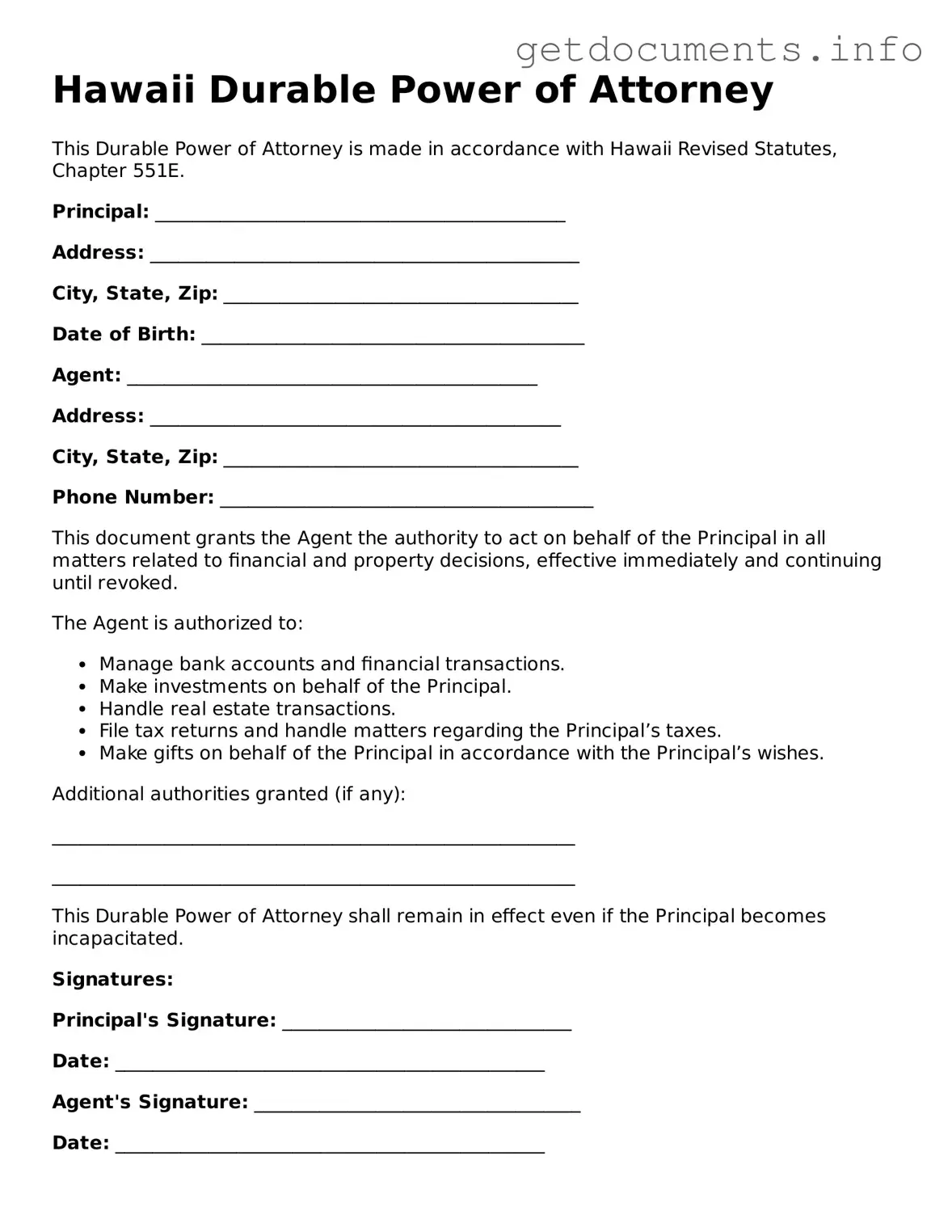Free Durable Power of Attorney Template for Hawaii
A Durable Power of Attorney form in Hawaii is a legal document that allows an individual to appoint someone else to make decisions on their behalf, particularly in financial or healthcare matters, even if they become incapacitated. This form ensures that your wishes are honored and that someone you trust can manage your affairs when you are unable to do so. To take the next step in securing your future, consider filling out the Durable Power of Attorney form by clicking the button below.
Access Durable Power of Attorney Editor

Free Durable Power of Attorney Template for Hawaii
Access Durable Power of Attorney Editor
Got places to be? Complete the form fast
Fill out Durable Power of Attorney online and avoid printing or scanning.
Access Durable Power of Attorney Editor
or
⇩ PDF File
